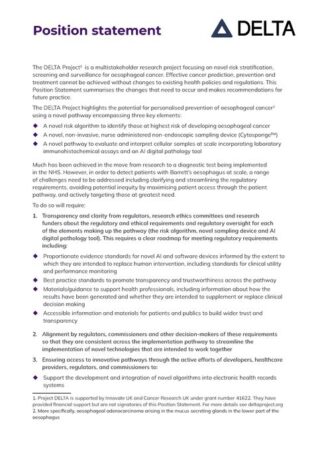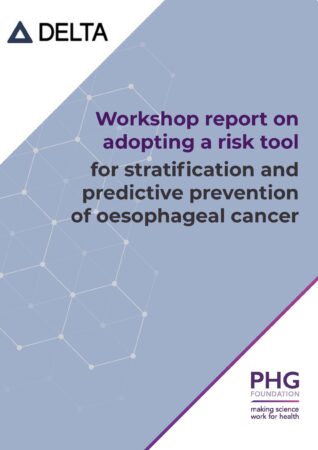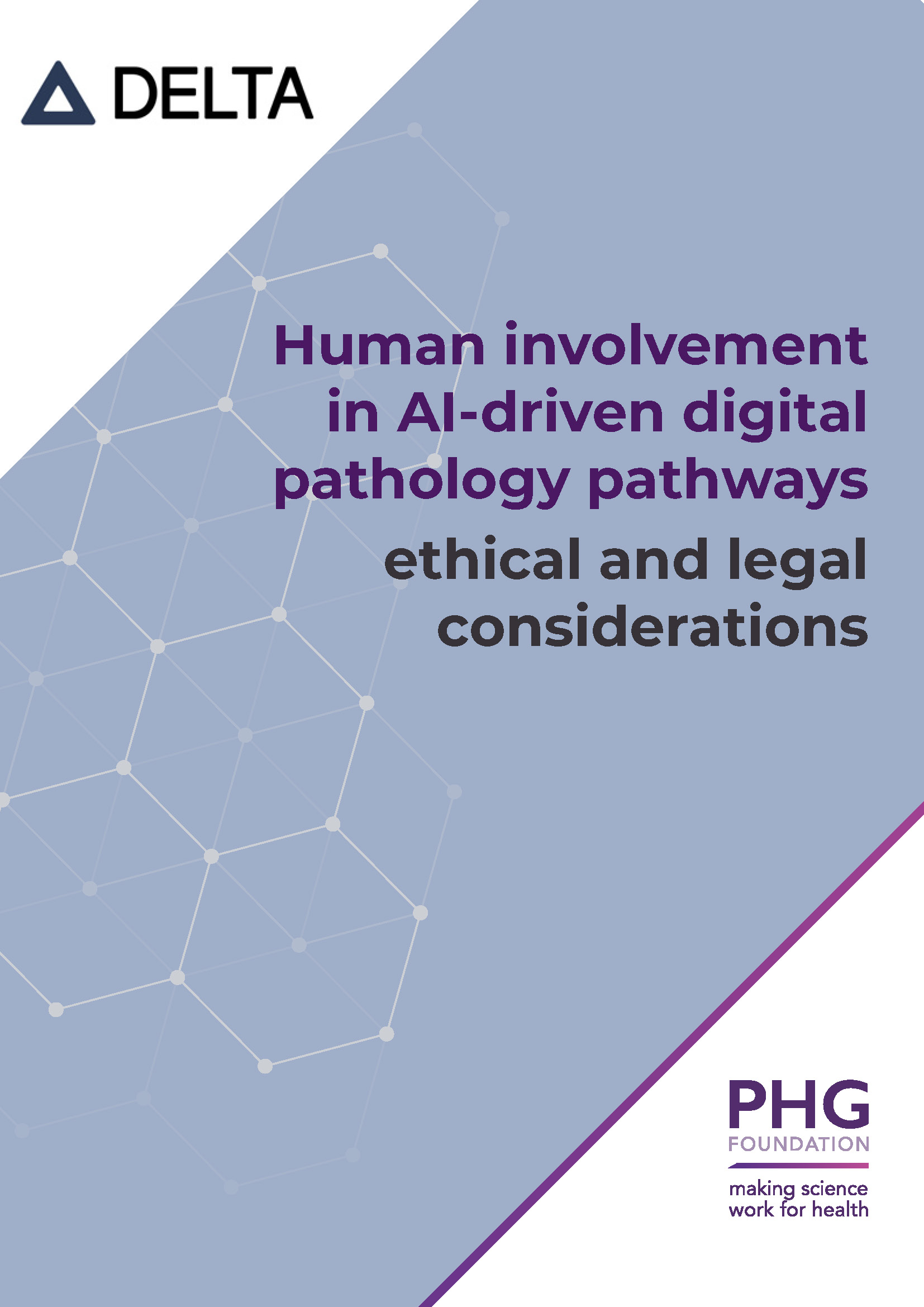Home Publications Reports Integrating AI with other novel technologies to detect and prevent oesophageal cancer
Integrating AI with other novel technologies to detect and prevent oesophageal cancer
In the innovative Project DELTA (integrateD diagnostic solution for EarLy deTection of oesophageal cAncer), the PHG Foundation led ethical, and legal research into personalised risk prediction and AI driven pathology to detect oesophageal cancer, and its pre-cursor, Barrett’s oesophagus.
Through a collaboration funded by Innovate UK and Cancer Research UK, researchers from Universities of Cambridge, Oxford, King’s College London and Queen Mary’s, working with Cyted, established a new patient pathway, encompassing a novel risk algorithm to identify those at highest risk of developing oesophageal cancer, a novel, non-invasive, nurse administered non-endoscopic sampling device (Cytosponge™-TFF3 test ‘sponge on a string’) and the use of laboratory immunohistochemical assays and an AI digital pathology tool to interpret cellular samples at scale.
The PHG Foundation analysed the ethical, and legal implications potentially arising from these novel elements and from the pathway, publishing our findings in two reports:
Human involvement in AI-driven digital pathology pathways: ethical and legal considerations
Although automation has many potential advantages, it also raises ethical and legal challenges. These pervade many aspects of how AI tools are developed and implemented and how AI influences decisions about the nature and level of human oversight that might be needed. Through a series of stakeholder workshops we explored the associated ethical and legal considerations and how they may impact the development of AI
systems, identifying measures that may be taken to address potential negative impacts.
Adopting a risk tool for stratification of predictive prevention of oesophageal cancer
This report describes research done by the PHG Foundation to assess the legal/ regulatory and ethical challenges associated with implementing a risk tool with the intention of enabling earlier detection of oesophageal cancers and Barrett’s oesophagus.
The partners on the DELTA project, including the PHG Foundation, published their recommendations from the study in a position statement issued in July 2023. The PHG Foundation has also published two reports.
Academic papers
Two papers from our work with the DELTA project have been published
Ethical and legal implications of implementing risk algorithms for early detection and screening for oesophageal cancer, now and in the future.
Published in PLOS ONE
Read: Ethical and legal considerations influencing human involvement in the implementation of AI in a clinical pathway.
Published in Frontiers in Digital Health







